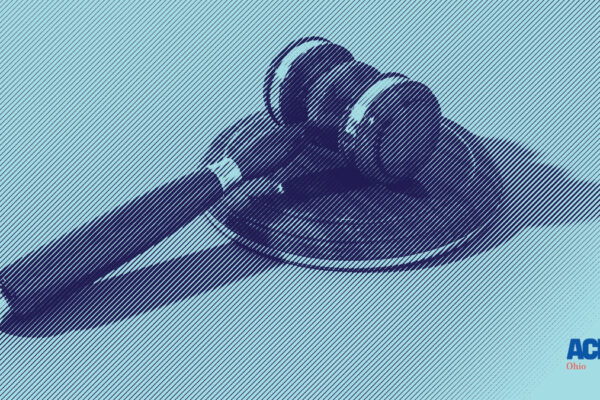CLEVELAND — Today, the ACLU of Ohio and the Ohio Justice and Policy Center filed a class action habeas petition on behalf of prisoners detained in the low-security Elkton Federal Correctional Institution who are at grave risk from the coronavirus. As of April 12, at least three people have died in this facility, and the legal organizations seek the immediate release, furlough, or transfer to home confinement of all medically vulnerable individuals at high-risk for serious illness or death in the event of contracting COVID-19.
“People at Elkton are dying. The situation is particularly dire, even compared to other corrections facilities,” added David Carey, Senior Staff Attorney at the ACLU of Ohio. “We've already seen that prisons are tinderboxes for COVID-19 because people are forced to exist in close, shared spaces for eating, sleeping, and bathing. Our clients, like everyone else in Elkton, are clustered together and completely unable to practice social distancing. Time is of the essence, and every day that goes by allows this disease to spread both inside and outside the prison walls. Further delay will result in further death.”
There are over 2,400 prisoners who are at risk at Elkton, and likely hundreds of them are in the proposed medically-vulnerable subclass, including all current and future prisoners over the age of fifty, as well as current and future prisoners experiencing: chronic lung disease of moderate to severe asthma, serious heart conditions, conditions that can cause a person to be immunocompromised (including cancer treatment, smoking, bone marrow or organ transplantation, immune deficiencies, poorly controlled HIV or AIDS and prolonged use of corticosteroids and other immune weakening medications), severe obesity, diabetes, chronic kidney disease or individuals undergoing dialysis.
"We are delighted to join with the ACLU of Ohio in fighting for prisoners who are trapped at FCI Elkton in the midst of the COVID-19 crisis. This is an important case that needs the court's immediate attention to avert catastrophe,” said David Singleton, Executive Director at Ohio Justice and Policy Center.
"Prisons are not Constitution-free zones. People who live and work in prisons should not be forced to face unnecessary risk of death and disease," noted Joseph Mead, Cooperating Attorney for the ACLU of Ohio.
The following is a summary of a few of the individuals represented, all of whom are at risk of severe illness or death if they contract COVID-19.
- Eric Bellamy is 52 years old and has a history of serious heart problems. He is housed in a cell with 2 other men in a 6 by 8 foot area, and 150 people in the unit. He is constantly within 1-2 feet of other people.
- Kendal Nelson has asthma, uses a CPAP machine, has had a heart attack, has active coronary heart disease, and suffers from stage 4 kidney disease. Because many people around him are sick, he tries to stay in his cell under the blankets to keep from being exposed.
- Craig Wilson has suffered from chronic asthma since childhood, and uses a rescue inhaler and medication for breathing problems. He is constantly forced to be in close proximity to others who may be sick, a situation that leaves him feeling like he has “been handed a death sentence.”
On April 3
rd
, U.S. Attorney General William Barr recognized the emerging crisis at Elkton and issued a memo to the Bureau of Prisons suggesting the release of vulnerable prisoners to home confinement; however, any effort to comply with the AG’s directive has been slow, half-hearted, and inadequate.
Because there is no vaccine, cure, or effective treatment for COVID-19, the only known way to protect against serious illness or death caused by the novel coronavirus is social distancing coupled with strict hygiene, both of which are virtually impossible in a detention setting. For those reasons, correctional public health experts recommend the immediate release, with appropriate precautionary public health measures, of those who are vulnerable to suffering the most acutely from COVID-19, as well as drastic reductions in the overall number of people detained.
Documents
Stay Informed
Sign up to be the first to hear about how to take action.
By completing this form, I agree to receive occasional emails per the terms of the ACLU’s privacy statement.
By completing this form, I agree to receive occasional emails per the terms of the ACLU’s privacy statement.

